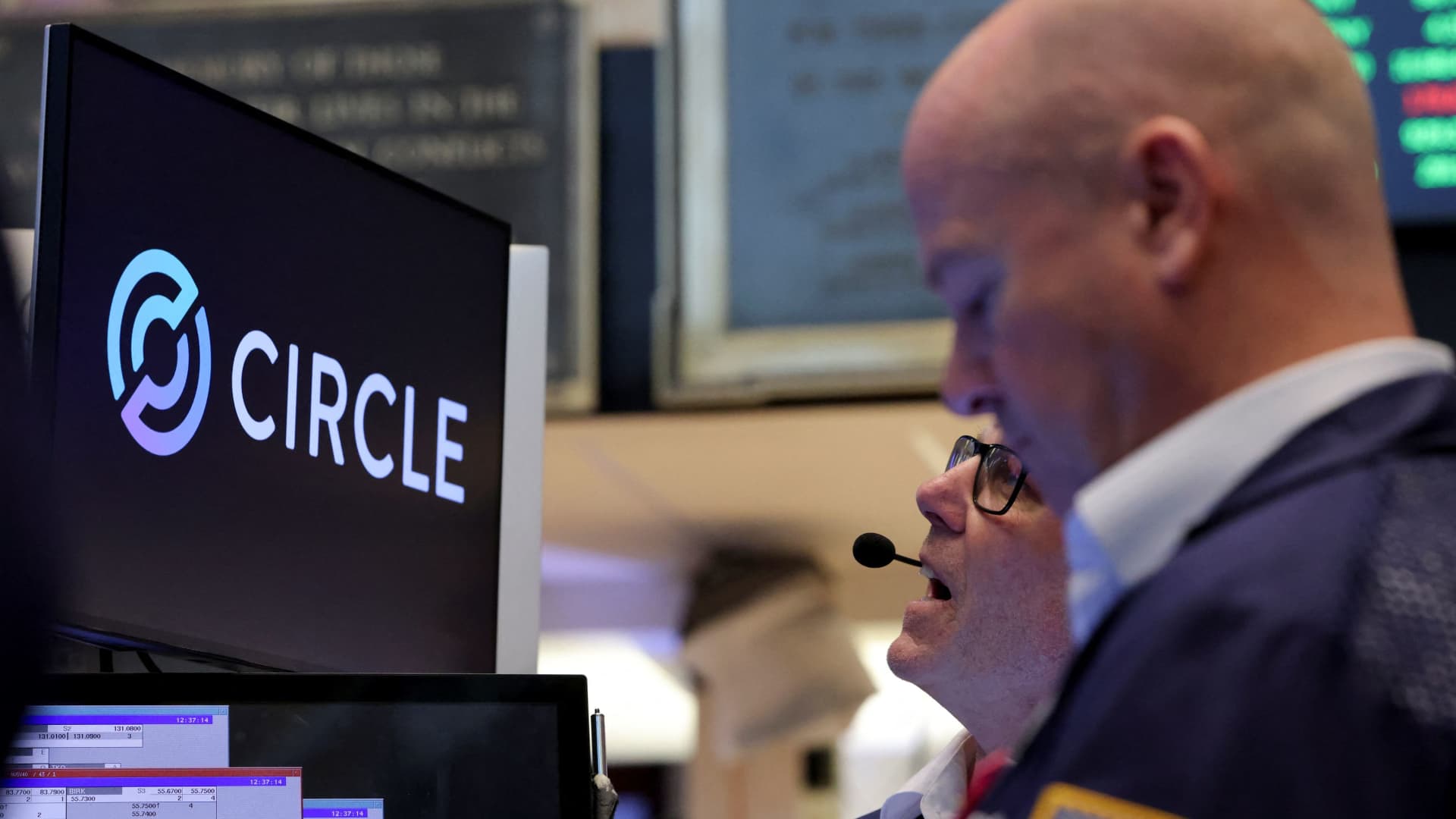Human resources software firm Deel said it has hit an annual revenue run rate of $800 million and is ramping up preparations to go public with a view to IPO as early as next year.
The startup, which aims to simplify the process of hiring, paying and managing employees remotely, told CNBC that it hit the milestone after a 70% year-over-year bump in revenue in December. A revenue run rate is an estimation of a company’s future annual revenue, extrapolated from a monthly data point.
Deel has also added to its capitalization table with two new major shareholders following a $300 million secondary share sale conducted last year.
The company said that General Catalyst and an unnamed sovereign wealth fund — which CNBC understands is Mubadala Investment Company, the sovereign wealth fund of Abu Dhabi — joined the round as new investors.
It comes after Deel in 2022 hit a $12 billion valuation. Following the secondary share transaction, the company’s valuation was boosted to $12.6 billion, according to two sources familiar with the matter, who did not want to be named due to the sensitivity of the matter.
In an interview with CNBC, Deel CEO and co-founder Alex Bouaziz said the company is developing robust financial audits, compliance processes and infrastructure as it looks to ensure it’s in a good position to IPO.
“We are getting ready to go out, potentially next year or a bit later,” Bouaziz told CNBC, adding that the firm recently added two new board members including former Illumina CEO Francis deSouza and former Coupa Chief Financial Officer Todd Ford. “We believe we have the right reasons to go public.”
Bouaziz said that a public listing could help the firm further along on its mission to build a recognizable brand in HR and payroll software.
“When it comes to HR and payroll, I’ve never truly felt like someone captured the essence of a great brand,” he said. “No one really [builds] a brand that you feel resonates with people.”
“This is really what we want to build. This is, I think, a big part of the experience that we can bring to people. Being a public company can reinforce that sentiment, be part of the story and be part of the business,” Bouaziz added.
The CEO said that Deel is under no pressure from its financial backers to go public despite its large size. The firm currently has about 5,000 employees globally.
Founded in 2019, Deel is a platform that helps businesses with HR services such as onboarding, compliance, performance management, payroll and immigration support. It became popular during Covid-19 shutdowns in 2020 and 2021, which drove the trend of hiring staff remotely.
Jeannette zu Fürstenberg, managing director of General Catalyst, said Deel’s “focus on enabling large enterprises to navigate the complexities of a global workforce fits seamlessly with our mission to back bold ideas that create enduring value.”
Zu Fürstenberg previously backed Deel in a seed investment when she was with European venture capital fund La Famiglia, which merged with General Catalyst in October 2023.
Against the backdrop of financial milestones and progress toward an IPO, Deel is currently facing litigation over claims that it facilitated money laundering transactions.
Last month, Deel was served a lawsuit in a Florida court which alleges it processed payments without proper licensing and enabled money laundering in relation to illegal payment transactions worth at least $2.27 million made on behalf of a former client, Surge Capital Ventures. It also accuses Deel of facilitating payments to Russia in violation of U.S. sanctions.
Deel strongly denies the claims and has fired back with a motion to dismiss the lawsuit, describing it as “riddled with baseless allegations, gross inaccuracies, conjecture, and downright falsehoods.”
Deel also alleged the suit was part of a “coordinated effort by a major investor in Deel’s primary competitor seeking to tarnish Deel’s stellar reputation.”
The plaintiff’s lawyer, Thomas Grady, is named as the incorporator of Waveling Insurance Services in a Florida Department of State filing. Waveling Insurance Services is now known as Ripple Insurance Services, which is a subsidiary of HR and payroll software firm Rippling. Grady is reportedly an investor in Rippling, according to Florida newspaper Naples Daily News, although CNBC was unable to confirm this.
Neither Thomas Grady nor Rippling were immediately available for comment when contacted by CNBC.
Bouaziz told CNBC he feels “pretty confident” about Deel’s chances of dismissing the lawsuit.


 Economics1 week ago
Economics1 week ago
 Economics1 week ago
Economics1 week ago
 Economics6 days ago
Economics6 days ago
 Finance1 week ago
Finance1 week ago
 Economics1 week ago
Economics1 week ago
 Blog Post6 days ago
Blog Post6 days ago
 Personal Finance6 days ago
Personal Finance6 days ago
 Finance6 days ago
Finance6 days ago










